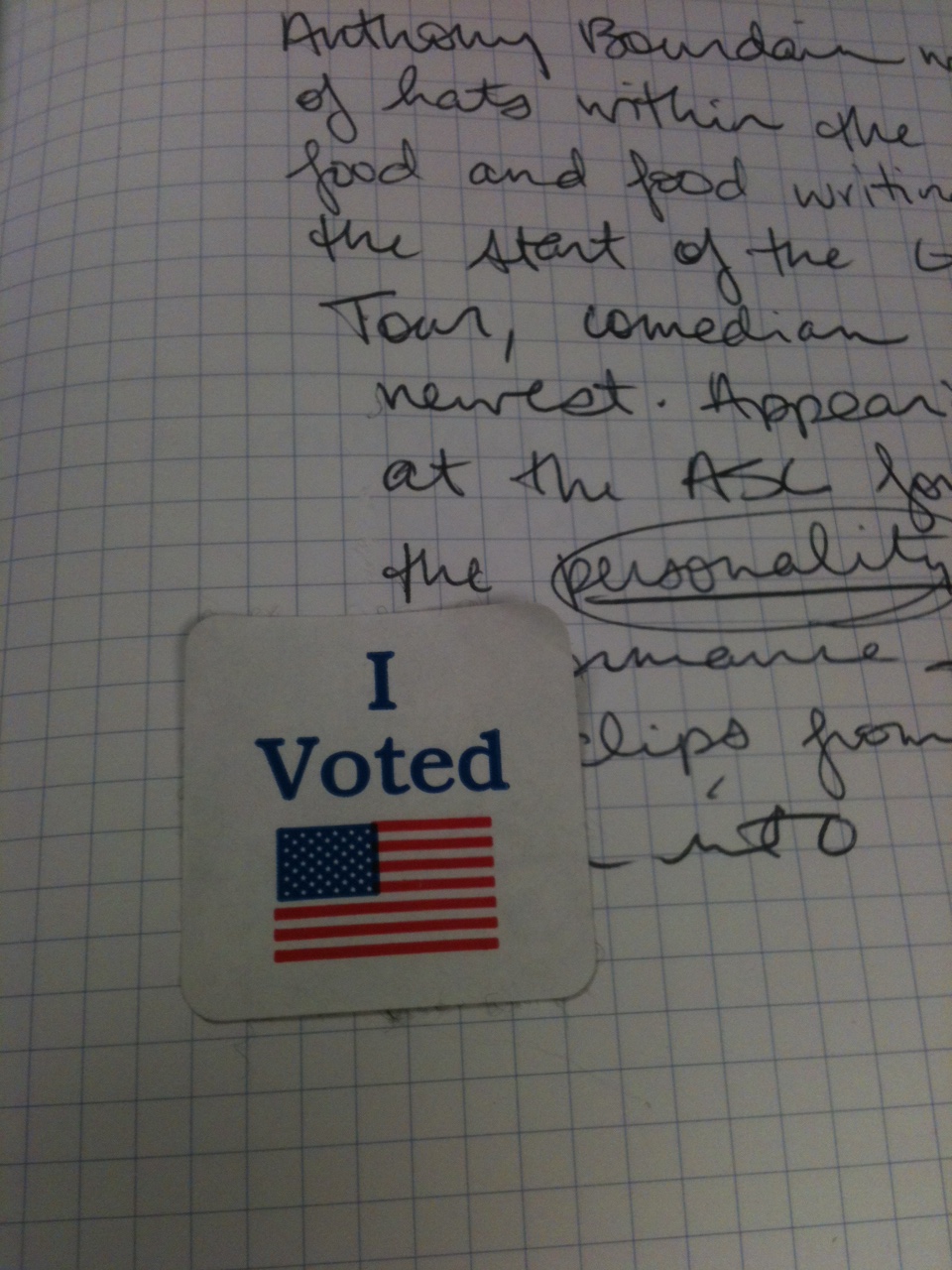 As you may have heard, I love voting. Walking into my polling place gives me butterflies—what if I choose the wrong guy (or gal) for the job? What if I haven’t done enough research about this person? Yep. Sounds like a first date, except instead of stalking on Facebook and Twitter, you use national news networks, campaign websites and your friends’ political leanings.
As you may have heard, I love voting. Walking into my polling place gives me butterflies—what if I choose the wrong guy (or gal) for the job? What if I haven’t done enough research about this person? Yep. Sounds like a first date, except instead of stalking on Facebook and Twitter, you use national news networks, campaign websites and your friends’ political leanings.
I’m not suggesting that you and your friends are into groupthink, but whether or not you like it, your peers’ political views influence your own. My group of friends is diverse in political views and backgrounds, so adventures through social media provide many opinions. During this past election, the media focus has been on the deep divisions in the country. Perhaps the repetition of this idea has lent it truth—up until very recently, the two dominant political parties differed on some issues, but were largely similar.
Because of the timeline, it appears that one of the causes of our political polarization is the way we get our news. With the huge increase in the number of news outlets provided by the Internet, individuals have an increased ability to choose their sources. As humans we tend to choose the sources that mirror and magnify our own views, so the tendency on the Internet is to do just that. In so doing, we may discount the possibility that other viewpoints might have merit.
Another result of this shift is that science is under attack. With personal bias (I said it! I said the b-word!) playing a role in our choices, opinion has been put on the same level as hard data, years of repeatable experiments and pattern of thought may be discounted by personal opinion. I’m sorry, but believing gravity doesn’t exist won’t save your life if you walk off a cliff. On the flip side, several huge discoveries made recently have turned out to be bupkis after they were introduced by the Nature or Science journals and used in TED|Talks and news articles.
This shift from hard evidence to opinion is deeply unsettling to me, both as a scientist and as a writer. I have been raised to believe that the purpose of reporting is to provide as much relevant information on a topic as possible and to leave the conclusions to the audience. On the Internet, that sometimes involves reading multiple articles about the same topic from different sources which can be hugely time consuming.
Outside of NPR, who has fired correspondents because of personal political activity (their policy here), and PBS, I am straining to think of others I trust to give the full picture. Their paychecks come from listener support, grants and government funding, so money is less of an influence. Granted, you might disagree if you’ve ever been stuck in traffic during a pledge drive, but that’s a different story.
With the newness of new media, it largely remains to be seen if a (mostly) bias-free Internet-based news source possible in this new environment. Now I’m curious—how do you get your news?
Paul Simon's “Call Me Al” tied with the Beatles' “Daytripper” as my favorite song for almost a decade. As far as I can tell, it has nothing to do with my parents going to the Clinton inauguration.